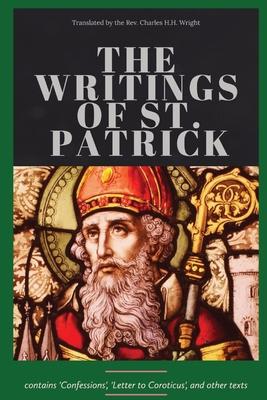St Patrick is a complex figure who continues to fascinate scholars and commentators as his yearly celebration comes round on March 17th. The saint is at once a fifth-century missionary bringing Christianity to the shores of Ireland and also a symbol of 'Irishness' (however we define the term) for people with Irish connections around the world. He has been appropriated for many different purposes and his image shaped accordingly to meet a diversity of needs. For instance, in the Ireland of the eighteenth century a variety of perceptions of the saint emerged that 'were moulded by religious, political, intellectual and social circumstances' unique to that century. Thus it was that the figure of Patrick emerged as an archetypal Irishman - a bearded bishop - on a copper halfpenny token coin issued by a mining company between 1789 and 1793, with his image also depicted on jugs manufactured by the English firm Wedgwood and a Belfast-based pottery company in the 1780s. Lives of Patrick were being reproduced by scribes and scholars at the same time, and these were considered a standard part of Gaelic tradition.

St Patrick is a complex figure who continues to fascinate scholars and commentators as his yearly celebration comes round on March 17th. The saint is at once a fifth-century missionary bringing Christianity to the shores of Ireland and also a symbol of 'Irishness' (however we define the term) for people with Irish connections around the world. He has been appropriated for many different purposes and his image shaped accordingly to meet a diversity of needs. For instance, in the Ireland of the eighteenth century a variety of perceptions of the saint emerged that 'were moulded by religious, political, intellectual and social circumstances' unique to that century. Thus it was that the figure of Patrick emerged as an archetypal Irishman - a bearded bishop - on a copper halfpenny token coin issued by a mining company between 1789 and 1793, with his image also depicted on jugs manufactured by the English firm Wedgwood and a Belfast-based pottery company in the 1780s. Lives of Patrick were being reproduced by scribes and scholars at the same time, and these were considered a standard part of Gaelic tradition.